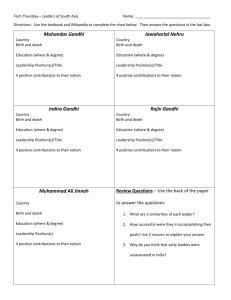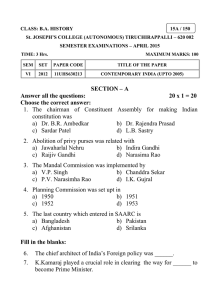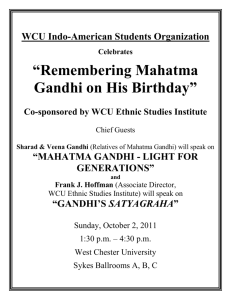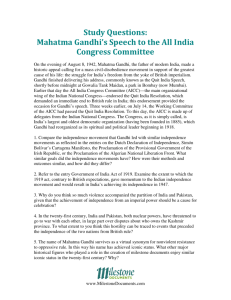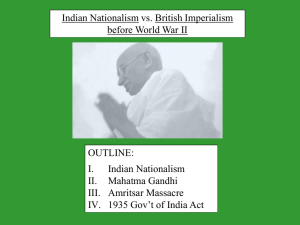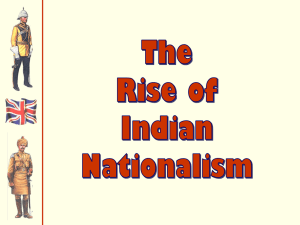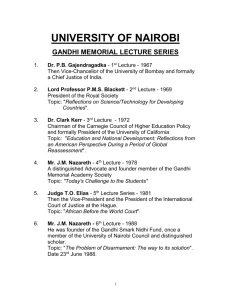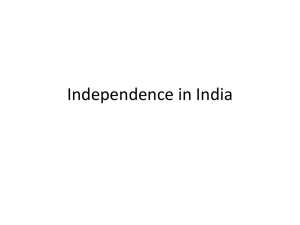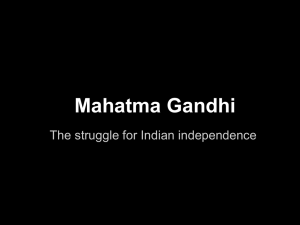Leader Analysis Sheet
advertisement
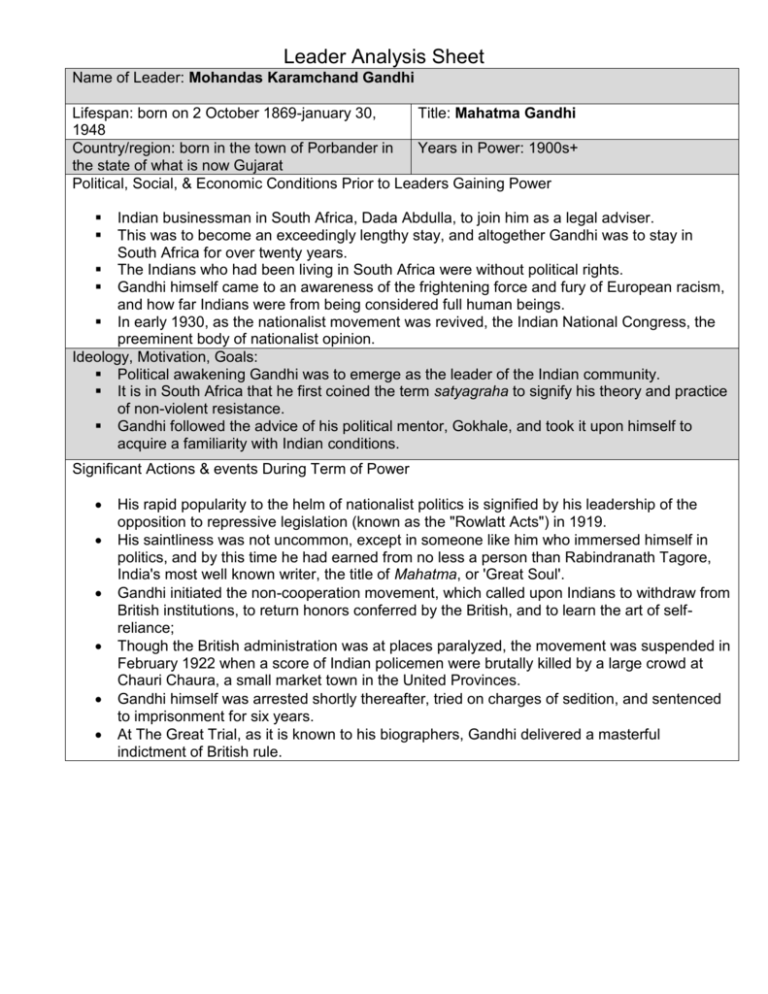
Leader Analysis Sheet Name of Leader: Mohandas Karamchand Gandhi Lifespan: born on 2 October 1869-january 30, Title: Mahatma Gandhi 1948 Country/region: born in the town of Porbander in Years in Power: 1900s+ the state of what is now Gujarat Political, Social, & Economic Conditions Prior to Leaders Gaining Power Indian businessman in South Africa, Dada Abdulla, to join him as a legal adviser. This was to become an exceedingly lengthy stay, and altogether Gandhi was to stay in South Africa for over twenty years. The Indians who had been living in South Africa were without political rights. Gandhi himself came to an awareness of the frightening force and fury of European racism, and how far Indians were from being considered full human beings. In early 1930, as the nationalist movement was revived, the Indian National Congress, the preeminent body of nationalist opinion. Ideology, Motivation, Goals: Political awakening Gandhi was to emerge as the leader of the Indian community. It is in South Africa that he first coined the term satyagraha to signify his theory and practice of non-violent resistance. Gandhi followed the advice of his political mentor, Gokhale, and took it upon himself to acquire a familiarity with Indian conditions. Significant Actions & events During Term of Power His rapid popularity to the helm of nationalist politics is signified by his leadership of the opposition to repressive legislation (known as the "Rowlatt Acts") in 1919. His saintliness was not uncommon, except in someone like him who immersed himself in politics, and by this time he had earned from no less a person than Rabindranath Tagore, India's most well known writer, the title of Mahatma, or 'Great Soul'. Gandhi initiated the non-cooperation movement, which called upon Indians to withdraw from British institutions, to return honors conferred by the British, and to learn the art of selfreliance; Though the British administration was at places paralyzed, the movement was suspended in February 1922 when a score of Indian policemen were brutally killed by a large crowd at Chauri Chaura, a small market town in the United Provinces. Gandhi himself was arrested shortly thereafter, tried on charges of sedition, and sentenced to imprisonment for six years. At The Great Trial, as it is known to his biographers, Gandhi delivered a masterful indictment of British rule. Short-Term effects: Long-Term Effects In 1932 he was to commence the so Rafter getting eleased from prison in 1925. called Epic Fast unto death, since he Over the following years, he worked hard thought of "separate electorates" for the to preserve Hindu-Muslim relations, and in oppressed class of what were then 1924. called untouchables. He observed, from his prison cell, a 21-day Interested in removing the serious fast when Hindu-Muslim riots broke out at disabilities from which they suffered, Kohat, a military barracks on the just as no one doubt that Gandhi never Northwest Frontier. accepted the argument that Hindus and This was to be of his many major public Muslims constituted two separate fasts. elements in Indian society.
